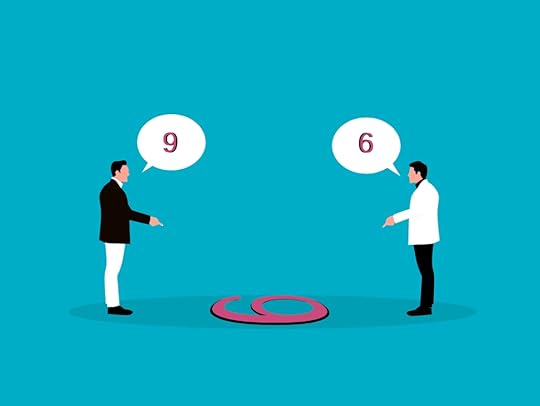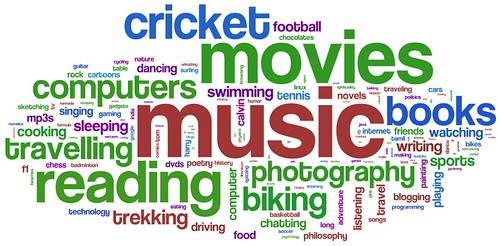David Andrew Jaffe's Blog
July 6, 2025
Busting Up Some Triglycerides

Enjoy!
I’m sitting to write this post trying to figure out how not to sound like some of the most irritating videos I’ve seen on YouTube. I’ll do my best… but the story as it’s unfolding just lends itself to being a bit cheesy.
But I assure you ever word is true, and I’m selling nothing. (And I’ll try not to sound ridiculous!)
Triglycerides in the Red Zone
It started about a year ago. I get relatively frequent blood tests on account of my Diabetes, and I try to take the results very seriously. And that’s when I got the frustrating news that my triglycerides had shot into the red zone. In fact, my whole cholesterol panel was completely out of whack.
My doctor jumped on the results, and went exactly where people like him tend to go. Drugs. No hesitation. He wanted me on statins immediately.
Now, in general I always look at drugs as my last resort. But I was particularly fearful of statins. Everything I read about them was awful, and I really wanted to avoid putting that garbage in my routine.
Intro to Triglycerides
Now a little background, so you understand the full picture.
The recommendation is to keep triglycerides below 150, and mine were in the 160s. I did a bit of research, and I was told most doctors don’t get too concerned until you reach 200. However, this is where it gets complicated. That’s only for regular folk. For diabetics, they say it’s absolutely vital to always be below 150.
My doctor thought I was an idiot for not wanting to take statins. In his view this was the only option, and nothing could possibly go wrong.
But instead I dove into the topic, evaluated my diet, and made some changes.
And sure enough… nothing got any better. My doctor doubled down. He was not happy with me for ignoring his “advice”. And he even said that it is completely impossible for a diabetic to get their triglycerides below 150 without statins.
I left the conversation frustrated.
New World Order
But I’m stubborn. No statins for me. And I started looking for a new doctor.
Last week I decided to get my blood checked. I just wanted an update on where I’m holding. My mouth dropped when I saw my triglycerides. 129! In fact, all my cholesterol issues were gone. Everything was better!
And to date, no statin has ever entered this body!
I couldn’t have been more thrilled. Something was finally going in the right direction health-wise. And it was done the way I preferred. Completely naturally, barely even noticing it had happened.
The only problem: I have no idea what got me these incredible results.
How the heck did this happen?
I was doing things more similarly than differently. If anything, I was no longer taking some of the earlier advice I’d been given. Originally I evaluated my diet, and it looked some culprits may have been techina, coconut oil, and high-fat cheeses. So I started cutting back on all three. And after a whole chunk of time of seeing no changes (besides being hungrier), they all started trickling back into my diet. Why torment my alrighty limited food choices if I’m demonstrably getting nothing from it?
So far I have only three theories (maybe a fourth) of what actually worked. But I’m not confident in any of them.
The first is I lost a little bit of weight.
I’d be way more confident if I had lost 20 or 30 pounds. But it was more like five. And extremely recently. So the odds that this nominal amount was enough or that enough time had passed to make an impact are really low. This certainly could be a long-term contributor to better health for me. But I don’t think it’s how I received my most recent bonuses.
The Mighty ACV
The second and third possibilities are ingredients I’ve been tinkering with lately.
I’m currently in a little weight-loss competition with a friend. However, I kind of panicked when I got started. I was already eating pretty well and exercising regularly. If I wanted to spark real changes in my system, I wasn’t even sure what to do. I had no extra time for more exercise and I was already doing plenty. And if I reduced my calories, I would be miserable and hungry.
I decided to experiment with some ingredients I heard were really good for you, and worked on creating various beverages to have in the morning and before I went to sleep.
I had to tweak them again and again, for an assortment of reasons. Sometimes they were undrinkably disgusting. Other times creating them was simply not sustainable. I can’t use half a lemon every time I want to drink something!
I finally arrived at recipes I could live with, and I’ve been fairly consistent for a few weeks now. Are they responsible for the moderate weight loss? Maybe. Did they finally kick my triglycerides in the ass? Also maybe.
But a little research told me two ingredients were the biggest candidates for these great results: Apple cider vinegar and ginger. If you, like me, are having some issues and the doctor is pushing you to take drugs that make you nervous, try these first! I’d love to see if others can repeat my results. (And I’m happy to share recipes with anyone interested.)
Super Foods?
Now, I am not a big fan of concepts like “super foods“.
I think with health, like just about anything else in life, we can always apply the golden rule: If it sounds too good to be true, it probably is.
Health is hard. Really hard. If someone promises you lower blood sugar and rock hard abs in one month by taking a daily supplement, just walk away. It’s garbage. That stuff never works. And usually leads to frustration… and empty wallets.
But something worked here. I can’t yet say for sure what it was, but I’m not complaining. I will live a longer, healthier life. And I’ll do it without dangerous drugs that might make my life significantly worse.
Qualitative Sleep
My fourth quasi-theory is highly connected to the previous ones. For a while now I’ve been exploring the concept of qualitative sleep. I am well aware I don’t get nearly enough sleep. That’s no secret. And it’s an obvious issue for me.
However, I believe the quality of ones sleep is far more important than the quantity. We’ve all had naps where we woke up feeling like a million dollars. And we’ve all had long nights of sleep in which we woke up feeling like trash. There’s a lot going on here, some of which I can’t get into at the moment, and other details I completely don’t understand (yet). But I can say this: I believe there are things we can do to enhance sleep quality. And I think my bedtime concoction may be doing just that.
So what?
Higher quality sleep with no other change in my life may have led to great, unintended benefits. Like lower triglycerides, perhaps.
I will certainly keep experimenting. And I will keep reporting. I strongly encourage others to do the same.
But I want to leave you with this message: We have more control over our health than we are normally led to believe. Keep fighting the good fight to be the healthiest and best version of yourself. Great things are absolutely possible!


The post Busting Up Some Triglycerides is featured at Jaffe World.
June 8, 2025
The Job Hunt: Staying the Course?

Enjoy!
I’m nervous as I sit down to write.
I’m nervous because I don’t know where I’m going with this. And I certainly don’t know where it’s going to end.
Hopefully someplace good…
As many might know, I’ve been job hunting for quite some time now. It’s been hard. Really hard. Sometimes downright soul crushing.
My Professional High-Point
One of my favorite moments in my professional life was when I was working at the long-gone Yeshivat Rambam in Baltimore, Maryland. After my first year, they decided to end my contract and move on from having a Jaffe in their lives.
I was frustrated, but I hopped right up and applied for jobs at two other schools. I was given full-time offers at both places. And that’s when the magic happened. I was called into my boss’ office and watched a broken man re-offer me my job. The blowback for letting me go was tremendous, and he was force to try to re-hire me.
And I was in heaven.
Not just because that moment was awesome (it was!), but because I now had to choose between three jobs. This is the best kind of problem a person could possibly have! I’ve since learned to look at that as the ideal. Too many choices. It’s hard… but the perfect kind of hard.
And it ultimately led to the high-points of my professional history.
The Job I Wanted
But these are different times. The job market is disastrous. Every job has hundreds of qualified applicants. And every employer knows they are 100% in control of the situation.
I left my previous job looking for a certain type of role. In an ideal world it would fit into several categories of things I was looking for. I wanted to progressively develop skills and experience in my field of choice. I wanted to work for a great company, one with mobility, opportunities, and a love of innovation, education, and out-of-the-box thinking. I wanted to wake up every day feeling like I was contributing to something special, not just spinning the wheels, working so a company could make cash but not make the world a better place.
And, of course, I wanted to make serious money. I wanted my bank account to grow each month. I wanted to live comfortably, to be able to buy a home, and to save a bit here and there.
From Five Goals to One
But things didn’t go terribly smoothly.
Each week I found jobs that looked interesting at companies I could see myself being a part of. I crafted lovely resumes and cover letters. Fine tuned my LinkedIn profile. Tried to make lots of connections.
And each week the frustrating generic rejection emails would trickle in, making the day simply gross and depressing.
And as time went by, I found myself crumbling. My unemployment benefits ran out. My bank account looked worse and worse. It’s so painful how two decades worth of hard work can nearly disappear in less than a year!
And then I started compromising. I had a list of about five things I wanted from a job. Even at the beginning I knew I was unlikely to get all five. But my standards were lowering, and a half-year into the game, I was willing to settle for just one of them. Any one would have made me happy. Or at least content.
Abandon Your Goals
But it still wasn’t happening. Everything was the same. And this left over the question: Should I start looking for a job that has absolutely none of the things I’m looking for?
I started asking around for different opinions and researching thoughts on this topic. Ultimately, there were basically two different approaches.
Approach number one: When things are tough, you take whatever you can get. Swallow your pride. Stop thinking about a bright, fulfilling future. All that matters is that cash is coming into your bank account.
According to this approach, I should ignore all my goals, at least for the time being. I shouldn’t seek a high salary or something that might advance my career. I should set aside my drive and degrees and certifications and experience and just apply wherever. I should pack groceries or pick up trash or work in a mattress shop or walk the neighbors’ poodles. So long as it pays for some of the rapidly piling up bills.
The more spiritually-minded among those with this philosophy don’t seek glory or fulfillment from their profession. They see work simply as a means to having more time for the things in life that truly matter, like family.
Or Stay the Course
But the other approach firmly rejects taking a crap job. It believes doing so only slows the process of getting somewhere great, which is bound to happen to those who push for it. If you’re helping customers at a shoe store, you’re not going to interviews at your ideal company. If you’re putting caps on toothpaste tubes, you’re not taking courses in preparation for your dream job.
In essence, they’re telling you to stay the course. Great things will only come if you don’t abandon your plan.
Now, this is a tough dilemma for me. I really resonate with both perspectives. Each one make complete sense to me.
On paper, the first approach rings more true. You can’t survive without an income. And I personally can’t survive without a daily schedule and goal. I need to be moving forward with life. I need to be accomplishing something at the end of every day.
And, of course, I need to put food on the table.
What Will Be Left?
But there’s another factor here. And I think it ultimately answers the question for me.
The last eight years have been rough on multiple levels. Don’t get me wrong. Great things have happened. I met and married an incredible woman. We created a lovely household for us, the children, and, of course, our beloved pooch.
Still, I’ve been woefully unfulfilled. I haven’t found my place here. I’m in the wrong neighborhood of the wrong city (of perhaps the wrong country). Finances have been tough. Social aspects have been tough. It’s been hard for me religiously and emotionally.
So what would happen if I took a job that fulfilled absolutely none of my criteria? I’m honestly terrified to find out. Would there be anything left of me? Or would I have once again made a sacrifice for the sake of my family that leaves me terribly uncomfortable on a day-to-day basis? Am I actually capable of just doing the motions at a cruddy job for the sole purpose of collecting a thoroughly mediocre paycheck?
Broke vs. Broken
I’m afraid I know the answer.
It will ruin me.
There will be nothing left.
So I’m left with only one choice: Stay the course, damn the consequences.
But how do I do it? I can’t be unemployed forever. And the bills never stop!
What’s worse? To be broke or to be broken?
I hope I never need to find out.


The post The Job Hunt: Staying the Course? is featured at Jaffe World.
May 26, 2025
5 Tricks to Going Viral on Quora

Enjoy!
Several years ago, I was trying to market my books. They weren’t taking off, and I was still a novice in the world of marketing. Someone wanted to guide me and pull me toward directions that might get the word out, ways that were a lot more off the beaten path than I was accustomed to. And I was more than willing to listen and try whatever he advised.
His first step was for me to create a Quora profile and start answering questions. The goals were to grow a following and to have my answers “go viral”, which at the time was for an answer to receive over 1,000 views, basically right away.
So I gave it a shot.
What is Quora Anyway?
I didn’t really know what Quora was. I quickly discovered it was similar to a Google search, but instead of receiving curated sites, on Quora anybody out there could say just about whatever they wanted to answer questions on infinite topics. It was borderline unmonitored. Yes, there were rules. Posts could be removed and people could be banned. But the threshold for what gets something flagged was exceedingly high. And there was definitely no one overseeing if information was accurate or if the person conveying information had any credentials whatsoever.
So basically Quora is the wild, wild west of answering people’s questions. And as crazy as it sounds, their “system” is working and working well. Quora boasts of over 300 million active monthly users, with users from countries all across the world.
I started off by answering questions about things I know, especially things I wrote books about. My answers were long and elaborate, with lots of links, and tons of images as well. It took me a long time to craft these beautiful answers.
And the results?
Not so good.
Not at all.
The Viral Turnaround
I was always hopeful for a breakthrough, but that breakthrough never came. And after several years, I still had fewer than a million views, and not even a thousand followers.
It was kind of depressing, but I was enjoying what I was doing. So I kept on pressing forward.
And then October 7th, 2023, rolled around. A war broke out on multiple fronts. And then it spread even further. The war spread to college campuses in America…
And it spread to the internet.
I wasn’t able to take up arms to defend my country. I could barely figure out if there was any way for me to help at all. And then I saw all these crazy questions on Quora, many coming from a place of ignorance. Others coming from a place of anger and hate. And I decided not to stay silent. Millions were watching these discussions, debates, and arguments. And even though I was not alone, it felt like there weren’t anywhere near enough people out there trying to spread a positive message about Israel.
So I did what I do. I wrote. And then I wrote some more.
And something happened I had no idea would occur. Within just one year, I had more than doubled my followers, and I had over 13 million views to my answers.
Mastering QuoraI started watching very closely, to see if maybe there’s something I could learn from this. Some lesson about how to be a master of a social platform I rarely hear people speak about.
I certainly wouldn’t go as far as to say I’ve conquered Quora. And let’s be honest, someone hopping on Quora to show their cleavage could crush my numbers in weeks. Nevertheless, I’ve picked up a few things along the way, and I’d like to share five “tricks” I’ve learned.
Trick #1: Be Authentic and Original
Artificial intelligence is taking over the written world. We’re going to get to a point probably quicker than most of us would like to admit in which 80% of the content we consume is generated by AI. And that includes responses to content! Which means the internet will basically be one giant chain of generic computer-generated conversations.
It’s scary. But I think it leaves an interesting opportunity.
Whether or not people can explain why, they can feel authenticity when they experience it. AI is simply not able to put real heart into things. (At least not yet!)
When you write a thoughtful and original answer to a question, it gets noticed. People are drawn toward sincerity. They love to see a bit of vulnerability in your writing. When you’re too precise or arrogant about your knowledge, it’s off putting.
And just as off putting is spitting back the same garbage everyone else says.
So say something new. Or present something in a way they’ve never heard before. And do it from a place of sincerely trying to understand the world. People can feel this in your writing. They are drawn to it. They’ll enjoy it and want more of it.
Trick #2: Pick the Right Topics
Topic choices really do matter. Unfortunately. We’d all love everyone in the world to be as passionate as us about the things we love… but they’re not. Almost never.
I can talk all day every day about health and fitness. But most of the world has no patience for this. They’d rather talk about football or politics or Marvel movies or Trump or dating.
So you have to be careful about what you choose to write about. My first book was about education. I thought I could sell my books by answering questions on this topic.
Guess what? No one cares. And no matter how great my writing may have been, no post would ever go viral. It’s not within the nature of the topic. Most people are just not itching to speak about the classroom.
Trick #3: Embrace Controversy
Now once you’ve chosen a topic, you need to not fear being controversial.
Fact is: Controversy sells. A lot. It’s boring to read the same old opinions. And even if it stresses people out and they get all worked up, they seem to thrive on that feeling. It’s like they want to be upset by other people’s thoughts and feelings. Like some sort of mini discomfort that hurts… in a good way. Like eating a spicy pepper.
The combination of a topic that’s interesting and comes chock-full of lots of diverse positions, alongside choosing a perspective some might take issue with, lends itself to getting lots of attention. And the algorithm with take care of the rest.
Fitness is a popular topic. And there are lots of disagreements, but there isn’t passion about those disagreements. So going viral for something fitness related is terribly difficult, as I’ve found out repeatedly. Outside of crapping on Planet Fitness or CrossFit (things people love to do), I haven’t seen anyone get really worked up on any topic.
Telling people you don’t believe in the theory of multiple intelligences or you think people shouldn’t do leg extensions, potentially contentious thoughts in the education and fitness worlds respectively, will simply not get lots of people pumped up enough to care.
Trick #4: Links = Bad
This is something I noticed a long time ago. I don’t have hard data to back it up, but I definitely saw that my posts got far less traction if they included any links.
There are obvious reasons I want to include links. I want to drive attention to my books or this here blog. But there are also obvious reasons why Quora might not like that. My assumption is either they think links make posts seem more “sales-oriented” and less objectively informative, or they know links will drive people away from their site, something no platform wants.
So, if I’m correct, you have to make a decision: Is going viral the goal along with perfecting your presence directly on this platform, or is your goal to drive traffic somewhere else? If it’s the former, it’s probably better to forego links. If it’s the latter, perhaps there are better platforms to accomplish your goals.
Trick #5: Be Reasonable
Finally, be intelligent and reasonable. Unless you’re a celebrity, not every post will go viral. In fact, only a small percentage will, and some might get very few views at all.
So keep on posting. Don’t give up. Follow these rules and you’re very likely to see a whole lot of movement in your account. However, it might take a while, and it might take a whole lot of posts.
For certain you should experiment. There are plenty of things I haven’t figured out yet. When is the best time to post? Is there an ideal length for an answer? How do images and videos affect the success of a post? Does the algorithm detect keywords?
Play around, see what works… and then let’s compare notes. I look forward to seeing you on the other side!


The post 5 Tricks to Going Viral on Quora is featured at Jaffe World.
May 19, 2025
My Improv Adventure: Come Back!

Enjoy!
For a brief and beautiful few months, I had a breath of fresh air. A wonderful outlet to just let my feelings and personality burst forth in the most fun and creative way.
My amazing wife thinks I was born to do improv.
Maybe it’s because I’m always cracking jokes. I’m always putting together witty puns at lightning speed. Sometimes I even breakout the guitar and just whip up a fun and silly song on the spot.
Whatever it is, she’s been repeatedly pushing this notion into my mind for the entirety of our marriage.
But the opportunities were few. Or non-existent.
The Jerusalem Improv Group
So my ears perked up when I saw a fella who was hellbent on starting an English-speaking improv group right here in my home city of Jerusalem.
As is my way, I didn’t jump at the opportunity. I was hesitant. It’s hard for me to go off routine. And it’s hard for me to try new things when they’ve disappointed me so many times.
I’ve been living in Jerusalem for over eight years. The city has a lot of things going for it. There are some really nice museums and parks. Tons of great restaurants. For things related to religious life, it pretty much can’t be beat. And from an historical or archaeological perspective, it’s the center of the world. There are endless things to see and do.
But for someone who seeks adventure. Or novelty. Or loads of really interesting activities with limitless variety, Jerusalem might not be the place for you.
Fun in Kansas City
I’m always hoping to see things here that are off the beaten path. Before leaving Kansas City, I was regularly checking the different runs available. Mud runs, color runs, zombie runs, underwear runs. Everything was so fun and interesting and creative. I haven’t seen hardly any of that here. Even when they try to do something out of the box, it’s straddled right up next to the side of the box. Like a night run… where the only real difference is the time of day it happens.
Yup. Creativity, way to go!
I love novelty bars. Bars with themes. My favorite bar in Kansas City was an 80s-themed bar, with old-school arcade games, pictures of scenes from classic films from the era, and screens playing old Wrestlemania videos. It was amazing!
When Jerusalem tries for a novelty, it’s something like changing the lighting… or experimenting with being friendly to customers.
So often I’m bored, and starved for something new and exciting.
Give Improv a Chance
So I gave it a shot. I went to this improv class. My expectations were low. I wasn’t confident I’d be good at it. I was even less confident that I’d be able to eke out a word, considering I tend to get a bit nervous speaking up in groups, depending on the size.
But I was mostly not confident about the quality of the class.
I assumed, like I’ve experienced so many times before, I was just about to enter a world of dull mediocrity. If you’ve ever experienced any type of low-quality theater, it can be painful to watch. And all you’re doing from start to finish is waiting as patiently as possible for everything to end.
And then we began.
Born to be Improv
Apparently I took to the concept like I was born into a roaming improv troupe. I was confident and quick, and the fella in charge repeatedly accused me of being dishonest at my claim that I was a complete and total beginner. Sure, I made “errors”. Despite how it may feel to the uninitiated, improv is a skill like any other. There are rules to learn, and methods for improving how you perform.
But just because you study things, doesn’t mean you’ll ever be good at them. And just because you are inherently talented at something, doesn’t mean you are eager to learn.
Not only was I a natural, but I was quite eager. I was drinking in all the new information I was receiving. And growing and getting better every time I participated.
But joining a fantastic improv class, with a bunch of fun, talented people, gave me a lot more than just a new hobby, a few giggles, and a nice way to spend my Monday evenings.
It actually made my life better. And that improvement spilled over into everything I else I was doing.
Laugh Therapy
Perhaps we could call it laugh therapy. Improv doesn’t always need to be funny. But it certainly is most of the time. When a group of witty and creative people get in a room with the right guide, and just start going, something special fills the room. Something magical. And even though it works better if you don’t break character and you hold back your laughter, those “slip-ups” are half the fun. Sometimes what’s happening is just so damn hysterical, laughter is a given. It’s inevitable.
And nothing could take a complicated day or month or year or life and turn things around quicker than a good, solid, practically uncontrollable belly laugh.
So that became my Monday night activity.
I found something I loved, was pretty good at, and could use to ease the many tensions that fill my often shockingly tense life.
But then it came to an end.
Which was and is a massive bummer for me.
Farewell Improv… for Now
I know my buddy Shakespeare taught us all that “Tis better to have loved and lost than never to have loved at all.” But having relief from the craziness only to have that relief snatched away was profoundly rough for me. It seems to be my pattern here. I’ve had a handful of hobbies in Israel I’ve connected to, but for whatever reason, they somehow always end up disappearing for an assortment of reasons, whether it be a program I used to work for or my adventures in fostering dogs.
And now I find myself reluctant once again. Do I take a chance and see my life packed with much more fulfilling experiences? Or do I take yet another risk of a highlight in my life being ripped away from me?
All I can say is this: Improv is now a part of who I am. I am not actively practicing or attending a class, but I know it’s something I love, and something that makes my life better.
And I hope it comes back to make me smile and laugh again soon!


The post My Improv Adventure: Come Back! is featured at Jaffe World.
May 12, 2025
Why I Offend… and Always Will

Enjoy!
I’ve been writing this blog for seven years! I get closer every day to 400 published articles, which is truly insane considering it’s just a hobby I do to keep my writing muscles toned and to collect my thoughts, attempting to understand this crazy, complicated world we live in.
Over those years there have been a lot of ups and downs in my posts. I’ve excitedly jotted down musings on the interesting and memorable things happening in my life. And I’ve shared my thoughts on the utterly inane.
A Wide Variety of Topics
But without intention to offend, I’ve also gotten into a fair amount of tense moments because of the things I’ve chosen to write about. In seven years, I have only taken down one post, due to backlash after airing out some personal family dirty laundry. And I’ve watched people unsubscribe, unfriend me on Facebook, or aggressively argue with me about topics as diverse as my thoughts on mandatory Covid vaccinations to my opinion of Shakespeare being forced upon our kids in school.
I’d like to say off the bat: I never aim to upset or offend anyone. In my youth, I didn’t mind being provocative. I enjoyed watching others get emotional or irritated because of things I said. But now it stings a little. I prefer when people are fond of me, and I think it’d be great if I could retain all the friends I’ve amassed over the years.
Yet I can’t help but think of the exciting moment when the infamous Conor McGregor became the first double champion in UFC history. He exclaimed, “And I’d just like to say from the bottom of my heart, I’d like to take this chance to apologize… to absolutely nobody!”
You see, whereas I don’t like upsetting or offending people, I recognize it as inevitable. I try my hardest to not be bothered by this fact. And knowing that changes nothing about what I’m going to say or do.
And Sometimes I Offend People…
I see the risk of offending others as an essential part of my process. No, not intentionally. I’m never going to write a post thinking to myself excitedly about all the people I will upset that day.
But sometimes I know it’s coming. And to be completely honest, sometimes I’m entirely blindsided. Or I expect a more mixed reaction to things I say. Although a lot can be learned by each and every situation. For example, I wrote about the murder of Brian Thompson. My basic premise was we shouldn’t shoot people. People could disagree with you. They can even do things you think are harmful or immoral. But under no circumstances is the right response to walk over to someone and gun them down in the middle of the street.
I wrote that article thinking, “Duh, who’s going to disagree with this? Am I just preaching to the choir? Who in my life is going to advocate for shooting people to accomplish their political or social agendas?”
But I was wrong. Quite wrong.
And not only was I wrong, but those who agreed with me remained silent.
There’s a message there. My guess is those who loathed this man and what he stood for were significantly more passionate about the matter than those who believe steadfastly in the rule of law. But whether or not that’s the underlying message, there definitely is one. There’s always something new to be learned.
I Write for Me
It always needs to be remembered: I write this blog for me.
What does that mean?
Yeah, of course I would like to influence thousands of people with my pearls of wisdom. I’d like to innovate thoughts and ideas, and be quoted by people across the world. And I’d love if my blog was somehow pulling in thousands of dollars a day. I’d love to wake up one morning and see that dozens of posts went viral, people clicked on hundreds of affiliate links and weird banner images and bought my books and my assorted designs and photos, and that day would be one where money would be no object. A roadmap to a worry-free life!
But those are just dreams and aspirations. If I were writing for the masses, I would do everything differently. Very differently. I know more than enough to create intrigue and pull in readership. But that’s not why I’m here.
I’m here to process the world. Every time I write something, I feel I understand the topic ever-so-slightly more than before I wrote. I’m a step closer to the wisdom I seek. When my fingers hit a keyboard, something happens in my heart. I begin to see things differently. Sometimes more clearly. Or sometimes I can better feel my lack of clarity.
And even that is a step in the right direction!
We Might Butt Heads
One can never become wise through arrogantly assuming to understand things. Wisdom can only be gained through pushing yourself past your limits.
I am not here to offend anyone. But sometimes I will. And as much as I love you all, the time might come when we butt heads over my words. We might feel a certain level of pain in our relationship.
It’s not fun.
But it’s a necessary evil on the path to a very important goal.
So what I’m saying is: In seven years of writing this blog, I have never typed a single word intended to offend anyone. I don’t wish to insult or alienate people. But at the same time, I’m not trying to avoid it either.
Why?
Argue… then Beer
Because one can’t find truth, knowledge, clarity, or anything valuable in this world whilst hiding behind the need to be careful. While weighing every word that comes out of our mouths.
We’re in a weird situation at this time in history, and I truly hope to see things turn around in my lifetime. People are afraid to talk, and it’s terribly unhealthy.
I hope for a world where actions matter more than words. And one where I can say something without fear or hesitation, because that’s just how conversations are. We’re not looking to hurt one another. And we know it! Our aim is to simply talk, and even though our words might occasionally crash into one another, it’s just a necessary part of flushing out our understanding of things.
And when we’re finished talking, no matter how intense things get, we then grab a beer together.
Because that’s just the way it is.


The post Why I Offend… and Always Will is featured at Jaffe World.
April 28, 2025
The Breeder Crisis: 4 Things to Know

Enjoy!
We are now already a few months past finding a loving home for our foster dog, an experience Devorah and I will most certainly never forget.
And an adventure that taught me countless life lessons, some of which I’m still trying to wrap my head around. One element of the learning experience is seeing a little too far behind the scenes of how difficult the world of saving dogs can be. And learning about one element that I never knew I could possibly be this angry about: The breeder.
So You Chose a Breeder?
If you want to adopt a dog, there are a handful of choices. Of course there are some people who just grab a stray off the street and give it a home, or they take from a litter of a friend or neighbor. But the two most common ways to adopt a dog are from a shelter or from a breeder. And today I want to speak about why I strongly encourage the former, and why I emphatically lambast the latter choice.
I’m sure there exist in this world moral dog breeders with good intentions. And there are some reasons why one might actually require a breeder. For example, it would be nearly impossible to get a hypoallergenic dog from a shelter. So for some a breeder could be their only choice.
But for the average person, here are four details why I not only think breeders should be avoided, but should actually be banned in some countries.
1) You’re Leaving a Dog Behind
The shelters are full. Overflowing, in fact. There are literally thousands of dogs out there who would love to be a part of your home. Why would new ones need to be created?
Every time someone wants a dog but chooses a breeder over a rescue dog, they are essentially condemning another dog to a life of living in a cage, rolling around miserable in its own filth, barely ever playing or experiencing sunlight.
Adopting a dog is a sacred bond. You are pledging to love and care for another creature. But it’s so much more than that!
There’s an ecosystem of loving animals who want nothing more in this life than your hugs and cuddles. When you adopt a rescue dog, you have a positive impact on that ecosystem. You’re creating a caring bond and opening up a cage for another wonderful animal to get prepared for his forever home.
But when you buy from a breeder, you just encourage them to breed more. And those thousands of amazing would-be pets simply get left behind. It’s not just ignoring the problem. It’s making the problem worse! If everyone who adopted went to shelters exclusively, we could all work together to make things better.
Instead we’re contributing to the real problem.
2) Doggie Death Sentence
When you get a dog from a breeder, you are killing a dog from a shelter. I’m sorry, but it’s the truth.
There are almost zero no-kill shelters in this entire country. And there are new dogs filling up the uber-limited spaces every single day. There are just so many stray dogs roaming around the country, and too many people who give up their dogs for all sorts of reasons. What does their brief existence look like? They are captured, chucked in a shelter, they wallow in their waste for a few days without any takers, then they are put down, their lifeless body is discarded, and a would-be best friend is forgotten forever.
All of this is happening while someone is walking away from a breeder with their purebred pooch, completely ignoring our dog friend who’s no longer with us.
I know we can’t think like this all day, every day. We get an expensive coffee, knowing full well there’s someone in the world who could use those $5 to not starve today. We buy a tshirt or an iPod knowing somewhere there’s likely an underage child who slaved to make it come into existence. And no, it’s not great. It’s quite imperfect.
But we simply haven’t figured out how to live in a world where we think this way all the time. It’s too hard on the mind and soul. It really is.
Also, those situations are very foreign. We don’t know the people we’re indirectly harming. We don’t see cause and effect.
But I think this is much different. I truly believe you are a part of the solution if you walk on past the breeder and head over to the shelter. That dog you give a home to is the one you saved. You see it with your own eyes. You feel the greatness of what you’ve done.
And maybe, just maybe, if enough people make that decision, the breeders will be forced to shut down their businesses and hopefully go do something that actually makes the world better.
3) Adopting is Always Hard
Now, my next issue isn’t directly about breeders. It’s about confused adopters.
Yes, it’s true that many rescue dogs come with baggage. Our dog, for example, has terrible separation anxiety. And despite our massive love for him, it doesn’t change that this is a very difficult and daily challenge for us.
But what do you get when you adopt from a breeder?
You get a dog!
Does that mean you get a fully-trained pooch, without any of the common issues that face dogs? Not in the slightest! Dogs from breeders pee and poop and get sick and get glass in their paws and chew up throw pillows and bark and growl and nip and hump legs and all the other habits one needs to work on. They don’t come magically trained, ready to tackle all of life’s tasks without any effort on behalf of the new owner.
If you adopt a dog, you are taking on a massive responsibility. You need to know this before the dog ever comes into your home. If you’re not ready for the challenges of training and raising a dog, it’s not that you shouldn’t adopt from a shelter. You shouldn’t adopt at all! That little bundle of joy needs to be in a home that can properly take care of him. If your home is not that, you need to figure this out in advance, and forego having a dog in your home.
If there is even a small chance that normal issues will cause you to abandon your dog, you should not adopt a dog. You are not making things better. You are a part of the problem, teaming up with breeders to make the world a worse place.
4) Breeders are Downright Evil
Finally, it’s easy to perceive breeders as being among the “good guys”. After all, they’re selling adorable puppies. They might even treat those puppies well, and legitimately care for them prior to the sale.
Yet, to those in the know, they have an abysmal reputation.
One of my background shows is the comical and quirky DC Legend’s of Tomorrow. In season 5, episode 10, one of the characters rescues a dog from hell (I said the show was quirky), and this is an actual dialogue from the show:
Ava: Oh my God, you adopted Son of Sam’s demon dog!
Gary: At least I didn’t buy from a breeder.
Yup, they said it. And I laughed out loud.
Breeders are creating custom dogs for sale, while thousands of other dogs are sitting miserable and terrified in shelters with no one coming to save them. And they’re being put down by the thousands to make room for more!
They don’t have to breed dogs. They just know that they could make money doing so. And no one is standing in their way, since what they’re doing is perfectly legal.
When you buy from a breeder, you are legitimizing what they’re doing. And you are contributing to the problem. Their offices and homes should be empty of customers. Unless new laws are created (good luck), this is the only way to put an end to this.
Otherwise you are doing something worse than saving Son of Sam’s demon dog. You are not helping. You are making things worse.
If you want a dog (and no one in your home has allergies), please don’t go to a breeder. Be part of the solution and give a rescue dog a chance. Make the world a better place, one loving pooch at a time.


The post The Breeder Crisis: 4 Things to Know is featured at Jaffe World.
April 21, 2025
Mahmoud Khalil and the Curious Case of Free Speech

Enjoy!
Ever since I heard about the curious case of Mahmoud Khalil, I’ve struggled with the story.
I don’t think I’ve had a situation with as many conflicting strong values as I see in this one.
For those not in the know: Mahmoud Khalil was a foreign student studying at Columbia University on a Green Card. He was an outspoken leader for the pro-Palestinian campus protests. Several weeks ago, he was forcefully removed from campus and detained because his actions led to things that were antithetical to a safe-campus experience, including many Jewish students feeling very threatened.
All of this was done without trial and without Khalil’s ability to defend himself.
Conflicting Values
Now, I’m conflicted for the following reasons.
On one hand, if someone despises Israel and causes harm to my people, instinctively and logically, I’m happy to say, “Screw the bastard. Let him rot where he came from.”
But the world is so much more complicated than that!
There are other values I care very deeply about as well. Free speech. Open and honest dialogue. The rule of law and the right to fair trial and representation.
Fact is, if you can deport someone with ease because you don’t like his views or the outcome of shouting those views, only bad will come from this. Why? Because today someone is shut down because he disagrees with you. Tomorrow someone else will be in charge, and those who agree with you will be shut down. And ultimately everyone’s voices will be taken away.
If you remove one person’s free speech, in the end you threaten all of our free speech.
So even if you say terrible, vile things, it’s in all of our best interest to defend free speech in almost every way it manifests itself.
Free Speech Absolutist?
But it’s not that simple. Not even close.
Some points and questions to consider before I move forward:
I’m pretty darn close to a free speech absolutist. But I do believe the most central limitations to free speech are reasonable and essential.
So, for example, free speech is basically irrelevant in a private setting. I have the right to dictate what cannot be said in my own home and my boss can dictate what cannot be said at his company.
Endangering the public is also not allowed. I may not wander into the mall and jokingly scream “terrorist”. This would likely cause a panic, lots of frantic running, and someone is bound to get badly hurt. So it’s also outside the parameters of permitted speech.
And finally, and most importantly, I cannot encourage violence. I cannot motivate people to take up arms and overthrow the local Walmart.
Yes, free speech is an essential element of the kind of society I want to be a part of. However, all freedoms come with logical limitations. And these are all very important for keeping a society safe and sound.
So the first step is understanding that whereas free speech is paramount, it is not and never can be fully absolute.
I Want to be an American Idiot
The next thing that must be understood is the rights of non-citizens.
These are murky waters. Now, I am by no means a scholar of the legal rights of non-citizens. But I think we all intuitively understand that the rights of a citizen are more robust than that of a non-citizen. But how different those rights are seems to be a big source of the argument at hand. Are non-citizens entitled to the same privileges of free speech? What about due process? I have seen people argue Mahmoud Khalil’s rights are identical to those of citizens. Others argue his rights are basically non-existent. And I’ve seen just about everything in between as well!
Nevertheless, it also seems intuitive that everyone is entitled to at least some level of due process. Otherwise the government can just detain or deport whomever it chooses with as little justification as it wants. And that’s a really dangerous territory to enter.
But just as intuitive, at least to me, is that the United States has the ability, if not the obligation, to revoke any and all rights of those for whom they have evidence are an actual threat to those who are 100% citizens.
And that send us back to the beginning of the discussion.
What Did Mahmoud Khalil Do?
Was Mahmoud Khalil just an ordinary person shouting his political beliefs he has (basically) every right to express? Or was he violating US laws, thus justifying any actions taken by the government to protect its citizens?
I’ll say first off: It’s hard to find direct evidence of violence (or other blatantly illegal activities) and it’s just as hard to find obvious examples of him inciting others to do things most decent people would consider absolutely unacceptable (like harming or intimidating other students).
And I think I should state that I, and many others, believe that if there is any evidence whatsoever of him doing these things, then great. Conversation is over. Detain or deport his ass. He broke the law and thus forfeited his status in the country.
But if that evidence exists, it has not been made public.
And that is a crying shame.
But not all problematic breeches of free speech are clear or direct. So I wanted to take a moment to chat about things that could be considered incitement, depending on intention and a few other factors.
What Does “Free Palestine” Mean?
So, I’d like to take a moment to explore word choices, and how they might impact this discussion.
There are two related phrases I want to explore: “Free Palestine” and “From the River to the Sea, Palestine will be free.”
These are common, everyday battle cries of those on one side of the Israel debate. But I think they are both frequently misunderstood, and are often said out of a combination of ignorance and a bit of brain washing, rather than knowledge.
“Free Palestine” is a phrase the average left-leaning Westerner uses to mean that the native Arabs of the region should be freed from the oppression put upon them by the aggressive Israelis. Now we can argue at length about whether or not that oppression or aggression actually exists. I do not believe they do, and my literal daily experience supports my beliefs.
But I don’t think that’s what those in the know actually mean when they say “Free Palestine”. When the extremist Islamist says these words, what he means is the region has been given to the Arabs by God Himself, and thus they have the right to every inch of the land. In fact, “from the River to the Sea” is simply an explanation of the area they demand full control over.
What Does Freedom Look Like?
And what would occur if the Arabs achieved such “freedom”? What would happen to the Jews living in Israel?
One of three possibilities (or some combo):
a. Expulsion
b. Second-class status
c. Or full-on murder
Odds are, at this stage in history, a group like Hamas would take over full control of the land, and option C would be the likely outcome. There would be a mass slaughter of the Jewish population.
So, if I’m correct, “Free Palestine” is hardly an innocent statement. It’s an outright call to either oppress or massacre Jews! And if that’s the case, it’s clear incitement to violence, and not protected by the first amendment to the Constitution.
So What About Mahmoud Khalil?
Now remember:
I don’t think the average college student in America wants to murder anyone. And I think many sincerely believe their words to be peaceful (or they have absolutely no understanding of what they’re saying).
But the same cannot be said of Mahmoud Khalil.
We might not have direct evidence of him inciting violence. He’s not on film calling on people to “kill the Jews”, nor is he shouting “Jihad” repeatedly.
But he was certainly a campus leader pulling people to angrily protest Israel, using phrases like those “innocent” ones mentioned earlier.
We Need Oppositional Voices
So where does that leave me?
I would hate to deny people the right to protest on campuses. I would hate to deny anyone their free speech. And I’m also loathe to taking away oppositional voices. I know to some it sounds illogical. But I want to be around those who disagree with me. I need them. Our silly little echo chambers don’t challenge us enough. And they cause us to be smug and overly confident in what we believe. We need to be surrounded at all times by multiple educated points of view. Otherwise we stagnate and stop thinking.
And that would be tragic.
But people also need to be safe. And laws need to be followed.
Where Do We Stand?
If there’s real, inarguable evidence that Mahmoud Khalil used violent language, then I am more than happy with his detention or deportation.
If his only actions were the use of language that some find objectionable, and all he wanted was just to express support for the people of Gaza, then I think his detention is a giant breach of free speech.
But lacking direct evidence, then it all comes down to the intention behind these perhaps ambiguous statements. If he is encouraging others to say “kill the Jews”, but he is just disguising the words in language many misunderstand, I think the case is fairly clear cut. He is overstepping his bounds and breaking the law. And thus forfeiting his rights.
But I can’t imagine that would be in any way easy to prove.


The post Mahmoud Khalil and the Curious Case of Free Speech is featured at Jaffe World.
April 7, 2025
5 Pieces of Advice for the Israel Advocate

Enjoy!
I became an accidental advocate for Israel over a year ago. Since then, I’ve learned a lot, which is why I thought it important to share five pieces of advice from what I’ve picked up along the way.
Those who know me well also know the irony of this. For nearly a decade I have used this platform to lambast my country for everything from the Disengagement in 2005 to the abysmal customer service to the driving, which in all honesty frightens me on a level on par with that of terrorism.
But there are things about Israel I have never stopped loving or supporting.
Israel has a rich and fascinating history I think everyone should be familiar with. I support the IDF in every way imaginable, whether it be contributing monthly to my favorite charity or encouraging people to enlist and seek a role they can use to make Israel a better, safer place.
The True Zionist
I see no contradiction. As I’ve stated before, I believe the true Zionist is not the one who blindly supports Israel or its government, but the one who has high expectations. The one who knows the potential of this nation, and wants the population fighting every day to create a better place.
I don’t want people to move to Israel simply to escape antisemitism. Or, God forbid, to escape a theoretical worse America under its current leadership. I want people to come here because it’s amazing. Because they’ve evaluated all of the details, and they’ve decided that it’s objectively the most incredible place to live.
But when I encountered Israel bashing online at levels I’ve never seen before, I couldn’t remain silent. I don’t like Israel’s ultra-high taxes or its archaic libel laws or its inability to give parking tickets to people blocking the entire sidewalk. But people aren’t criticizing the country for those issues. They’re accusing Israel of many things, using extremely harsh and violent language, and they are making my people look terrible in ways that are wildly undeserved.
So I stood up and shouted from the rooftops of Quora, and continue to do so every day. My words have been seen millions of times, and I’d like to think I’m making a difference.
As an accidental advocate for Israel, today I’d like to speak about five things I learned–five pieces of advice–about how to do this more effectively:
Pieces of Advice #1: Understand the Duty
First, you need to recognize the sacredness of the duty. It’s no joke. The propaganda and the loud shouting voices out there are many. There’s more of them than there are of us. And their rhetoric is painfully effective, even if it might seem inane at times.
As a teacher, I learned and re-learned over and over again that just because you thought you were clearly and intelligently getting a point across in no way ensured that it was actually happening. Sometimes you have to re-state your point in an entirely different way. And even still, there’s no guarantee those listening will understand or agree with your statements or sentiment.
It is not on the listener to try harder to understand. When you recognize the importance of what you’re doing, you also need to recognize how essential it is to keep fine-tuning your way of saying things. Every time you make a point, you need to pay attention to how others react to it. You should never stop improving the message.
That’s how you treat your words when your words are your most precious commodity.
Pieces of Advice #2: Define the Terms
The second thing is very important for knowing what’s a positive use of your time.
Most teachers or parents know that sometimes a question is not a question. It’s a statement–usually a rude one–cleverly hidden in the form of a question. In this particular case, it will usually contain language that makes assumptions or uses unnecessarily inflammatory language.
For example:
Makes assumptions: Do Israelis feel guilty because of the genocide occurring in Gaza?
This question, which is most likely just a statement, assumes there is a genocide occurring.
Inflammatory language: Do you think there will ever be peace between the Palestinians and the Zionazi occupiers?
The term ‘zionazi’ gives away everything you need to know about the one asking the question. “Occupier” says a lot as well. They’re insulting all of Israel and likely the Jewish people. And they’re trying to get a rise out of you. They aren’t seeking an answer. They’re whole purpose is to annoy and frustrate those with whom they disagree.
One option when these “questions” arise, and not a bad one, is to just ignore them. These people don’t deserve your time or attention. They are not expressing curiosity. They are just trying to pick a fight.
And if their question makes them sound insane, just let it go. They’re harming themselves and their own cause, without any need for your assistance.
But you do need to weigh whether or not there is a benefit to answering, because there are always others watching as well. And sometimes silence can be misinterpreted as agreement. So when you–the thoughtful, educated advocate–ignore these questions, that means two other types of people will likely get involved: Those who agree with the asker, and those who take the bait and get into an argument. Both are problematic and do a terrible disservice.
If you want to control the narrative, get involved.
But the first thing to do is to pick apart the question. And this needs to be done calmly, intelligently, and systematically. Define terms or demand they define their terms. Use facts. Make sure it’s abundantly clear that the asker has an agenda and point out what that agenda is. Someone reading the thread should see your educated and informed response, and it should give them pause. They should know you are the one who has a clue, not the ill-informed or aggressive individual who asked in the first place.
Just whatever you do, don’t get angry, aggressive, or insulting.
Which leads to the third of my fives pieces of advice.
Pieces of Advice #3: Don’t engage
When someone is nasty or insulting, it’s very tempting to give them back what they give you. Be aggressive, fight with people, call them names.
The problem is twofold.
First, when you do this, you’ve just fallen into a trap. They’re baiting you. Trying to pull you down to their level. Prior to this, you were levelheaded and logical. But now you’re just a mean, nasty genocidal Zionist who must resort to insults.
If you want to be better than others, you need to actually be better than others.
But the second part is even more important. There are other people watching the conversation. Some are involved, some are quiet. And they’re far more important than the individual you’re engaging with. Why? You will more than likely have zero impact on an aggressive pro-Palestinian activist who’s already made up his mind that Israel is the devil. But others watching might be on the fence, and they’re willing to look at things in multiple ways. They will be entirely unimpressed by insults and jabs. They’ll be listening to the arguments and to the manner in which those arguments are being made.
No one has ever swayed a person to their belief system by calling someone an idiot. And it’s off-putting to anyone watching. Keep a level head, don’t lower yourself, stay calm, and continue to make righteous arguments. It’s not easy. But the correct choice rarely is. Do this and you can have a much greater impact on anyone who might come across your conversation.
But in order to have a rational discussion, you need facts and information.
Which leads to the fourth of five pieces of advice.
Pieces of Advice #4: Get Yourself Educated
Middle Eastern history and politics are some of the most complex topics I’ve ever tried to understand. There are so many facts and details and opinions and arguments. It’s overwhelming!
No, you don’t need a PhD in Middle Eastern Studies to have an intelligent conversation about what’s happening. But the more you know, the better. If you find yourself dealing with these questions a lot, make it a priority to be well read and to follow current events. There are many, many interesting books and websites and newsletters.
It’s hard to know everything. Basically impossible. But it’s not hard to know something. You just have to prioritize that knowledge and make obtaining information a daily task.
It’s not good to be just one step ahead of those who seek to denigrate Israel. And you certainly can’t afford to be one step behind.
And that leads to my final piece of advice, one I don’t hear often. Also, one I maintain is probably the most important.
Pieces of Advice #5: Embrace the Negative
Israel’s history is complicated. The country and its various governments are by no means perfect. And if you only read articles about Israel written by those who just want to shout praise of the nation and whitewash the complex pieces of its history, you will be woefully underprepared when challenged.
Most of the so-called negative parts of Israel’s history have nuance, if not completely different perspectives on how to understand what happened. You need to know all the bumps and bruises in Israel’s past and you need to contemplate them thoroughly. The worst thing is when the first time you hear about these things is mid-discussion with someone who is anti-Israel.
Don’t run away from Israel’s past. Know about the Yom Kippur War and the Disengagement. Read all about Deir Yassin and the Hannibal Protocol and the bombing of the King David Hotel and Lehi’s attempt to conspire with the Nazis. Don’t be caught off guard. If you are, you’ve essentially lost the battle right then and there. You allow the opposition to appear more knowledgable and authoritative, and to frame the entire narrative with a shred of information to give a different point of view.
Embrace the negative! If you can understand and explain the blemishes of the past–or reframe them as less damning than they’re being presented–you will be better equipped to handle the complications of the present.


The post 5 Pieces of Advice for the Israel Advocate is featured at Jaffe World.
March 24, 2025
Artificial Intelligence: To Embrace or to Run?

Enjoy!
Please note: Not a single word of this post was composed with artificial intelligence…
But I digress…
When you hang around the world for a bit, you can’t help but notice how quickly some technologies go from being hip and trendy nothings to things you can’t imagine living without.
It feels like just yesterday I would spend hours sitting in the computer lab at SUNY Albany. I didn’t own a computer yet. The internet was in its infancy. I marveled at how cool it was to send an email, extremely advanced technology at the time. I would manually write out a ridiculous email address no one could possibly remember to send messages to friends at Brandeis or to a Yahoo, Hotmail, or Comcast address.
Just months before this I was still writing actual letters to people, sending long hand-written notes to friends living in exotic places… like New Jersey. Calling them was rather expensive. So I’d whip out my favorite pen, some looseleaf paper, and exercise my inner caveman.
The Times Are A Changin’
Now it’s 2025. I spend half my waking hours doing things related to the internet. I can hardly remember times when it was challenging or expensive to get through to people or keep up with old friends. When the internet cuts out at work, everyone goes to grab a coffee. Productivity is over until things are restored. No one knows what to do in a world where things aren’t connected.
These innovations keep happening, big or small. In 2005, I was working at Cornell. Friends offered to create a Facebook account for me. It was some weird new way of keeping in touch with people only available to college students. And here we are, a full twenty years later. Meta, the company that owns Facebook, is one of the wealthiest in the world, and the service is like an empire, with billions of active monthly users. Billions!
It was barely significant, and now it’s in every corner of the world.
Any thinking person needs to wonder what’s next. What will be the giant, life-changing innovation that will transform the world forever? What will be that tool we can’t stop talking and debating about?
Is it Artificial Intelligence?
Until recently, I doubted something else would come along in my lifetime post-internet that would truly shock and amaze me. Yes, we’ve got electric cars. Yawn. Smartphones and the expansion of the internet are both mind boggling. But ultimately they’re just extensions of the first thing that blew my mind. They’re the internet… just made more accessible and more filled to the brim. But ultimately it was the original breakthrough that changed the world forever.
But it might have actually happened again.
Artificial intelligence is obviously not something brand new. But the quality and ubiquity, with Open AI’s ChatGPT program, has taken the world by storm. And even though everything feels so novel and there’s clearly plenty of room for improvement, it seems clear to me the world is already a different place than it was just a few months ago.
At the moment, you can’t really expect a company to do well unless they attempt to incorporate some type of AI into the package of what they’re trying to sell. And there doesn’t seem to be any end in sight. The discussions surrounding ethics of Artificial Intelligence abound. And the advances being made are happening at lightning speed.
Embracing Technology
People are worried about their professions. They are well aware that even if AI doesn’t entirely replace them at the office, it will most certainly revamp or even revolutionize everything they do. Most of us love falling into a pattern, where work essentially becomes easy. We are a master of our craft, capable of doing our jobs in our sleep. The thought of having to rethink our entire lives is intimidating and unsettling.
But it’s how the world works. And how it’s always worked.
I admit, I was a slow adapter to a lot of modern technology.
For the longest time I didn’t have a smartphone. I liked my privacy and anonymity. I didn’t (and don’t) want to be available at all times.
I didn’t embrace buying things online or using banking apps.
I would actually go to stores. I would walk into a bank to deposit a check. Like an animal!
And now I love that I could be sitting in my living room, browsing through billions of products to find exactly what I want at the right price. I am happy to get super excited when the item miraculously just shows up at my doorstep a short time later. And I’d be very glad if I go the rest of my life never setting foot in a bank again. What a waste of time!
Wouldn’t it be nice if I could go back and convince myself to embrace things sooner? How much time would I have saved that could have been better spent? I could have saved so much money, and even more headache!
AI: Tools to be Used Correctly
And then the news started talking all about this new thing: ChatGPT. And I did what I always do. I ignored it. I didn’t want to try things just because everyone else was.
But eventually I gave in, experimented… and after a very short amount of time, I started forgetting what life was like before this tool existed.
I have some advice, first to anyone using the technology, and afterwards some for those avoiding it. Pay close attention to the vital word I used in the previous paragraph: Tool. ChatGPT and other AI innovations are tools. They are neither good nor bad. You need to learn use them correctly. And you need to understand what they are, and what they aren’t.
If you use ChatGPT, but never refine your prompts or edit what it spits out, you are using it incorrectly. Like someone swinging a hammer backwards.
You always need to look at what’s produced, critically evaluate it, add a human element, and refine things until they are undeniably fantastic.
The Artificial Intelligence Diamond in the Rough
AI produces diamonds in the rough, and you need to uncover the hidden beautiful gems. Artificial intelligence isn’t great in and of itself. It’s a fantastic tool with massive potential you can use to produce something incredible.
But make no mistake about it: AI is here and it’s not going anywhere. If you ignore it, the world will move past you. You will lack abilities you need to possess. Dive in! Have some fun with it. And with the right work, focus, and dedication, you will learn how to navigate this brave new world. You will learn how to make this unique tool help you create amazing things you could have never imagined.


The post Artificial Intelligence: To Embrace or to Run? is featured at Jaffe World.
March 10, 2025
Trump’s Blitzkrieg Bop

Enjoy!
What a whirlwind. An information overload. An insane blitzkrieg of activity, if you will.
As some may have read, I am a big fan of a newsletter called Tangle. Tangle is dedicated to trying to provide an impartial view of the latest news. And even though I feel its readership has made a sharp pull to the left in the past several months, I still feel the newsletter and its fearless leader, Isaac Saul, are doing a bang-up job attempting to keep everything balanced and intelligently presented so as to not unfairly bias the readers.
Tangle has four regular issues every week, each dedicated to one topic. I really enjoy attempting to guess what the day’s topic will be. Just a matter of week’s ago, the task was fairly easy. I would consider the news topics most trending at that day, coupled with the ones with the most controversy and room for different interpretations. I would also factor in whether there was enough smoke settled so the news wouldn’t change drastically before publication.
Then Trump Rolled In
And then Donald Trump stepped into the Oval Office for his second round, and I’d say about 75% of the time I have absolutely no idea what that day’s newsletter will be about.
One of the greatest wishes of mine is that Israel will be in the international news as little as possible. If it makes it there, either there’s something serious happening regarding war or terrorism, or some other tragedy that will cause the world to point angry fingers in our direction. I once heard a lovely little joke: Israel should be blessed to be as boring as Canada. Yup. Let that sink in. When do you ever see Canada in the news? Or Greenland, for that matter? Well, lately they come up a bunch. But not because of anything actually happening in either location, but because of things uttered by America’s brash, controversial leader, President Trump.
Israel, sadly, was plastered all over the news for much of the past year… while simultaneously it felt like the United States was taking a break. And why did it feel that way? Because America’s aging and tired president was a bit of a slow mover. This is not a criticism, just a fact. It felt like Joe Biden did in one year what Donald Trump attacks in a week or two.
And it’s overwhelming!
Which is really the point, and what I want to write about today.
Donald Trump’s Blitzkrieg Approach
Blitzkrieg is a type of warfare popularized by Nazi Germany. In its simplest form, Blitzkrieg, or lightning war, is when you throw everything out all at once. You try to overwhelm the enemy, giving them no time to prepare or react, and hope for a quick and decisive capitulation.
And Donald trump is running the country with a full-on Blitzkrieg approach.
He is tackling massive issues aggressively, such as illegal immigration, fentanyl spreading across the country, the war in Ukraine, and government waste. But he is also addressing issues that aren’t even issues, such as renaming the Gulf of Mexico and the making sure the United States finally has an official language.
The average American can’t keep track of everything that’s happening, since our lives don’t center around politics. If you work a full-time job, have a family, and hope to both eat and sleep, odds are you’re going to miss some of the many changes happening constantly. By the time you wake up tomorrow, it’s possible there will have been another dozen things to catch up on. And who has time to keep track of it all, let alone do a deep dive to properly understand the decisions or to monitor the results of things to see what kind of outcome they’re having?
Who Has the Time??
Nope, at best you’ll probably just hear about two or three things on Facebook from your normal echo chamber. You’ll get pissed off or excited alongside your online comrades with similar beliefs. And before the smoke clears, and before you really have a chance to read up on anything, you’ll already be worked up about the next major (or minor) topic that caught your attention.
And I believe that’s really the whole idea.
Perhaps Donald Trump really cares about the name of a gulf. Perhaps he couldn’t care less. Maybe he’s just putting up a flag to see how people react to the decision in order to gauge loyalty and capitulation.
Or maybe it’s all just a smokescreen. We’re so caught up in the details, we don’t have time to consider the things that are truly important, or to properly understand everything that’s happening.
President Trump’s Blitzkrieg approach to running the country is chaos with a purpose, if not many purposes, and it’s hard to really fathom what things will look like when all the smoke finally settles from this bombardment of executive actions, crazy statements, and loud and aggressive attempts to shake up the world.
I’m both fascinated and terrified. I’m excited, but watching through my fingers as I cover my eyes, nervous that if we shake the snow globe a little too hard, it’ll slip from our hands and shatter everywhere.
Explosion of Newness
I don’t know what will be. And I think anyone who confidently predicts how the United States will look in four years is full of crap. There’s just too much happening to have any clue how things will look when it’s all behind us. By then we’ll be able to take a nap, wake up, and evaluate what we just saw.
Will the war in Ukraine finally come to an end? What will America’s relationship with the rest of the world look like? Will political division in the States grow wider and wider? If the biggest wars in the world get resolved, will Trump get any positive recognition for this? Will the economy go up or down? Will we all have more money in our pockets or less? Will the word look more different or more similar to how it does now? Is all the insanity we’re experiencing going somewhere? Will this pace of change be kept for all four years of Trump’s presidency?
I’m exhausted just thinking about all this.
And again, I think that’s the point.
Trump’s running the country like a bull rampaging through the government. Some things will get broken along the way. Others will improve, get replaced, or just sit there in a world of everlasting confusion.
I have no idea what will result from the explosion of newness. But I’m certainly damn curious.


The post Trump’s Blitzkrieg Bop is featured at Jaffe World.



